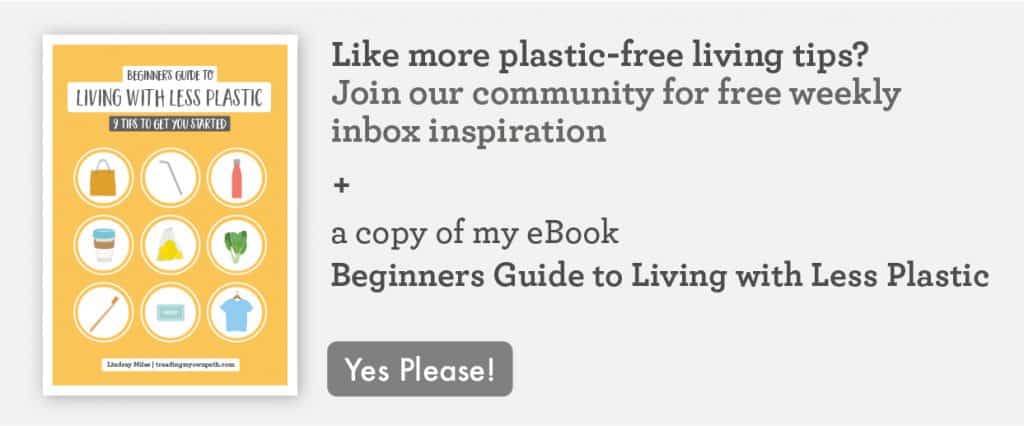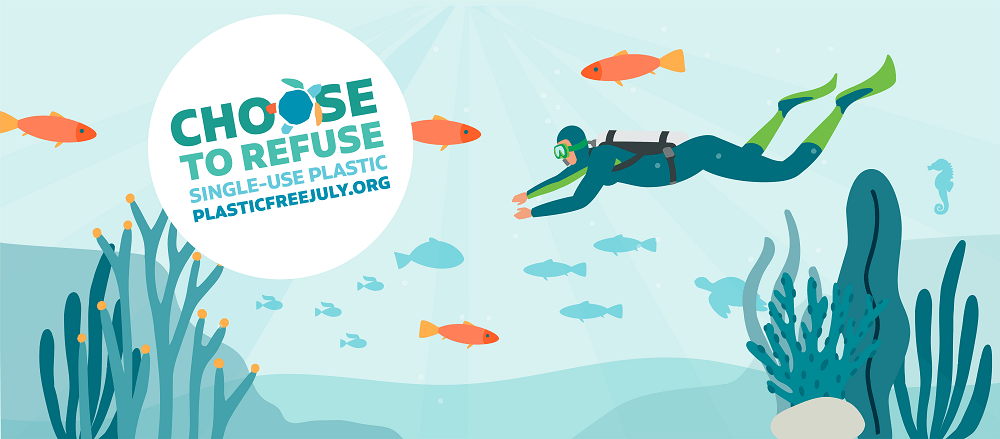Join the ‘War on Plastic’ with Plastic Free July (+ 3 Ideas for Plastic Free Veterans)
Another year, another Plastic Free July – and the appetite for living with less plastic is stronger than ever! More and more of us are concerned about plastic pollution and more importantly, determined to do something about plastic use in our own lives.
Plastic Free July always swings around at exactly the right time of year. Never heard of it before? Plastic Free July is a free-to-join challenge that runs during the month of July. It encourages us to choose to refuse single-use plastic, and be part of a movement that is not only raising awareness but taking action and sharing solutions.
I first took part in my first Plastic Free July back in 2012, when I was one of about 400 participants. Since then the challenge has grown exponentially, and in 2019 it was estimated that 250 million people from 177 different countries took part.
If you’d like to be registered for this year’s challenge, you can do so via the official Plastic Free July website.
I’ve written about Plastic Free July every year since my first challenge, and this year is no different in that respect. But I always try to approach it from a different angle, and this year I wanted to reach out to the plastic-free veterans.
There are plenty of articles for plastic-free beginners; I’ve written a number of them over the years. Here is last year’s contribution: 5 Tips to Get Prepped For Plastic Free July (and Living with Less Plastic). (There are plenty more in the archive).
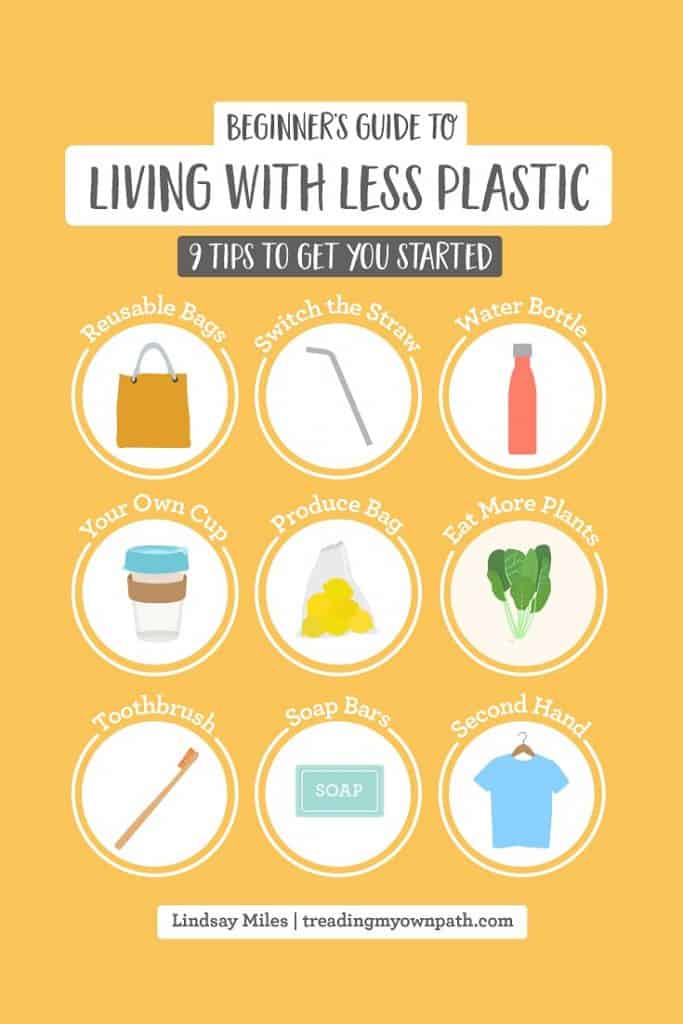
I also created this graphic and accompanying (free) eBook to give you more ideas to get started.
But for those coming back for a second, third, fourth or more year, getting those same beginner’s tips you received in year one can seem a little… well, repetitive.
So today’s post is for you.
3 Plastic Free July Ideas for Plastic-Free Veterans
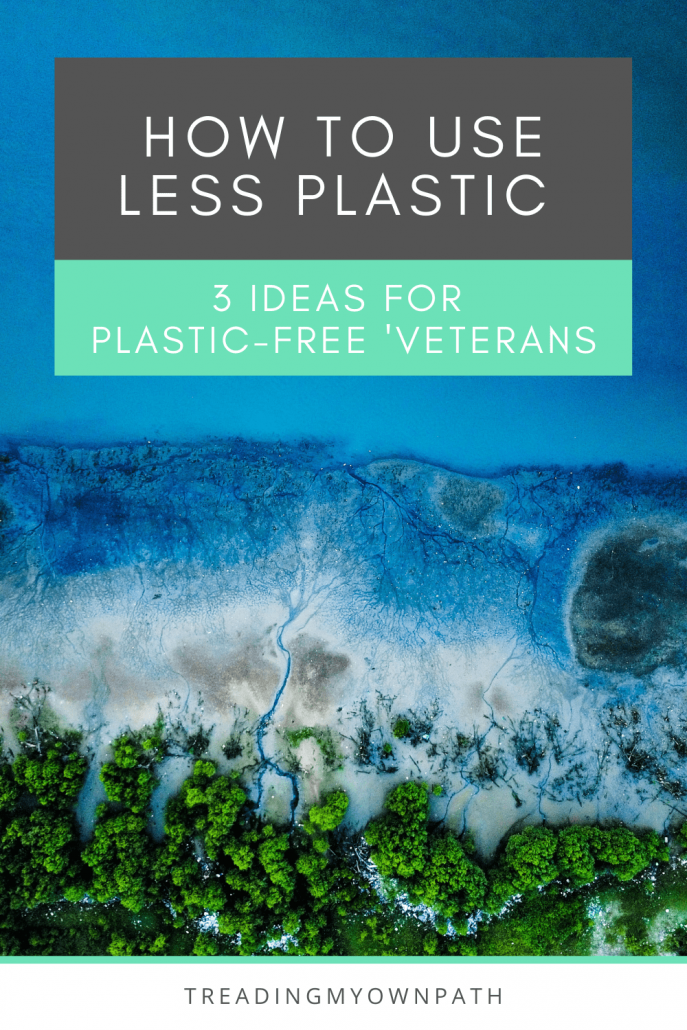
Find Your ‘One More Thing’ Swap
You’re a pro at bringing your reusable bags to the store, you remember to refuse the plastic straw, you opt to dine-in rather than getting those takeaway containers and you’re a regular at the bulk store. Hurrah!
But that doesn’t mean there isn’t still something more to do or somewhere else to improve.
- Take another look at the contents of your landfill bin and your recycling bin, and see if there’s anything in there that could be swapped out for something plastic-free;
- Consider revisiting something that you tried in previous years and decided was too hard – maybe times have changed and this year is the year you succeed;
- Try to make something new from scratch: maybe a food item, a cleaning recipe or a personal care product. That doesn’t mean committing to make it from scratch forevermore! It’s simply about experimenting with change;
- Maybe there’s something that is too expensive, impractical or time-consuming to become a permanent change in your life, but you can commit to making this change for 31 days during July to show solidarity with the movement and do your bit.
Plastic Free July isn’t just about refusing plastic. It’s about learning new skills, examining our habits and challenging ourselves to do better.
Take the Challenge Beyond Your Own Habits
Those first years, Plastic Free July is all about changing habits, making swaps and settling into new routines. Trying to remember our reusables and investigate all the alternatives takes up a lot of energy, and time.
But new habits eventually become ingrained, and the time we once spent figuring out all of this stuff is freed up again. Plastic Free July is a great time to spread the refuse single-use plastic message to people who haven’t heard of it before.
Maybe that means pinning up some posters at work, or persuading your local cafe and shops to get on board with the challenge.
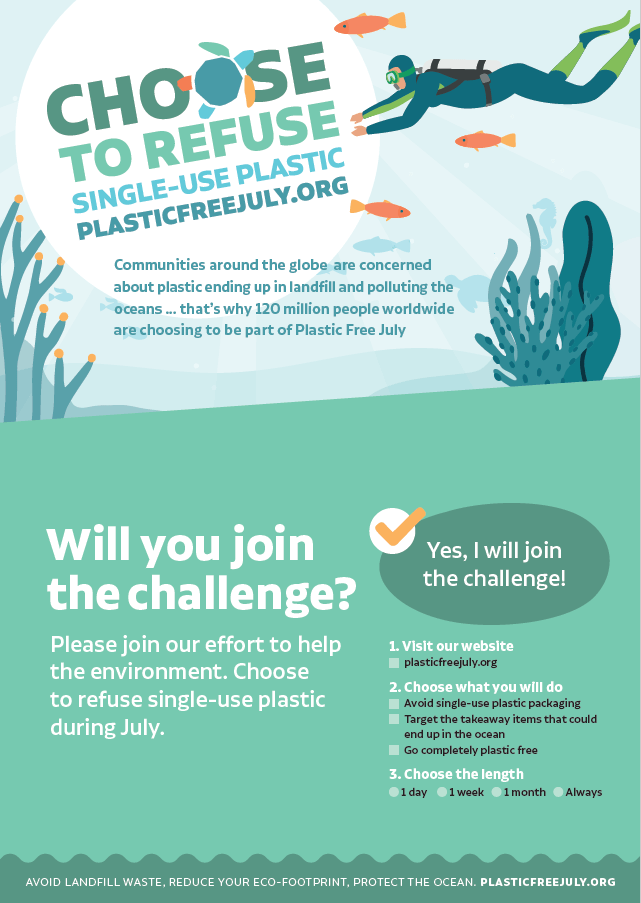
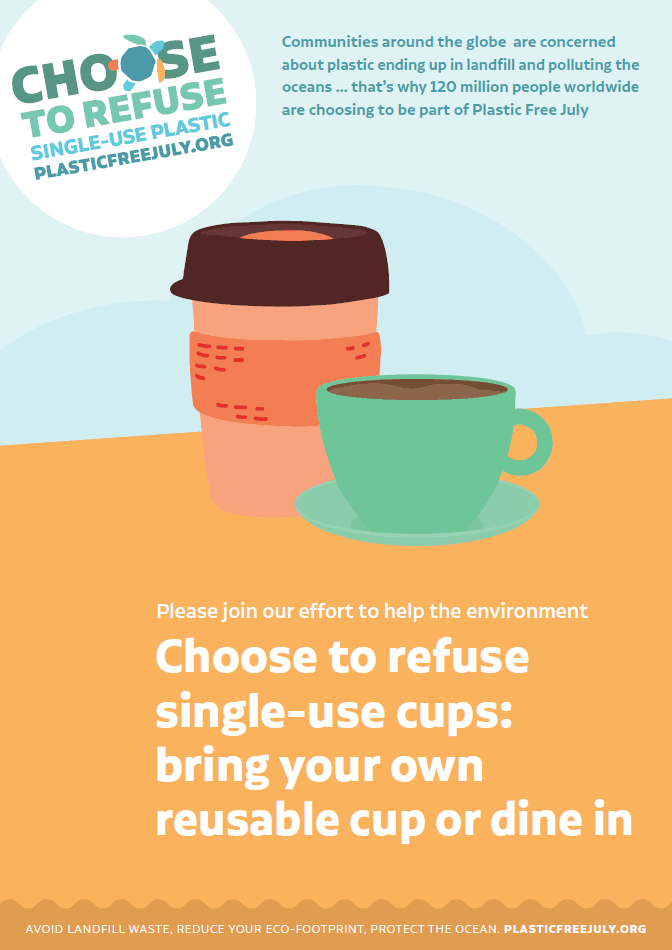
(You can find the whole range of official Plastic Free July posters – free to download – on the Plastic Free July website.)
Maybe it means giving a talk to your colleagues or your community, organizing a litter pick-up or hosting a movie screening.
Maybe it means writing to companies expressing your annoyance with their packaging and suggestive alternatives, or writing to companies to tell them you love their commitment to reducing waste.
Maybe it means writing to your local councillor or MP to ask them what they are doing about plastic pollution.
Use your voice to speak up for what matters, and share what you know.
Be The Kind of Person You’d Have Liked Supporting You in the Early Days
Chances are, if you’ve been living plastic-free for a while, you’ve ventured down the rabbit hole and discovered a whole heap of twists and turns along the journey.
There are probably plenty of choices you made and things you did back at the start that with the benefit of hindsight, you wouldn’t do again.
Try to remember this when you see others making similar choices. You have the benefit of hindsight, and they don’t. Yet.
How would you have felt if you’d triumphantly shared your first plastic-free chocolate bar purchase that took you three weeks to track down, only to be told that a) didn’t you know that particular Fair Trade organic bar is made by a multinational company b) it’s probably not vegan c) haven’t you heard of palm oil d) you didn’t buy it in the supermarket, surely e) did you even look at the carbon footprint?
It’s unlikely you’d feel inspired to continue, that’s for sure.
Part of the journey is trying new things and making mistakes. If you see someone sharing a choice they made that you wouldn’t make, before diving in to “help”, ask yourself: how helpful will it really be for you to share your opinion right now?
This is particularly true on the internet, with people you don’t know. No-one wants to be berated in public by someone they’ve never met and who has no idea about their individual circumstances.
That’s not to say that we can’t or shouldn’t share information. Just be sensitive about what you share, who you share it with and how you share it.
People need time to find their own way. That first Plastic Free July can be overwhelming. As someone who has gone ahead, we can try to remember that, be encouraging, inclusive, and celebrate the small wins of others.
If we want people to feel confident to take the next steps, we need to be supportive with the first steps.
Challenges such as Plastic Free July are not just for beginners, but we all start as beginners. If you are a beginner, I want to assure you that whilst change can be challenging, it is also fun… and very rewarding. Those ahead of you are here to help when you get stuck – we have all been stuck at some point! If you are a veteran, remember that part of our challenge is continuing to push ourselves, not get complacent and help keep the spark alight in those just starting out.
Happy Plastic Free July, everyone!
Now I’d love to hear from you! Are you a plastic-free newbie? A veteran with one year’s service? Two or three year’s service? Four or more years of service? If you’re a veteran, what do you remember most about starting out? Do you remember?! And what advice would you give to someone taking the challenge for the first time? Any other thoughts or ideas? Please share your comments below!
